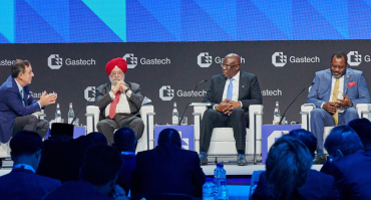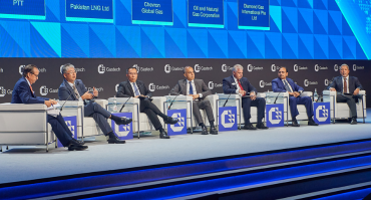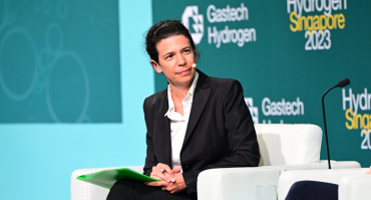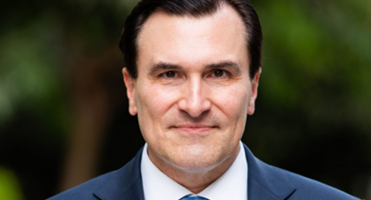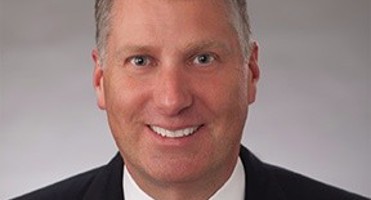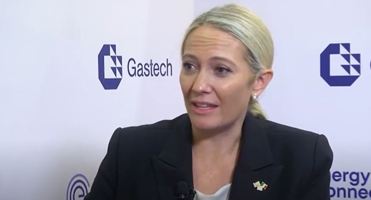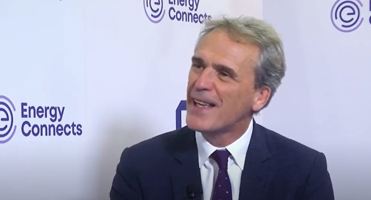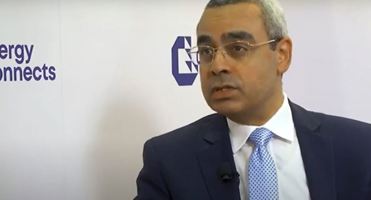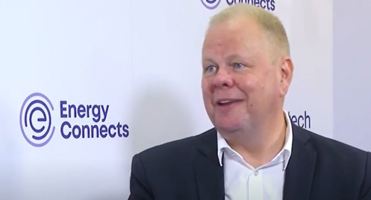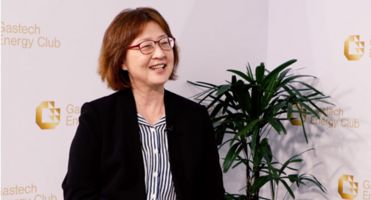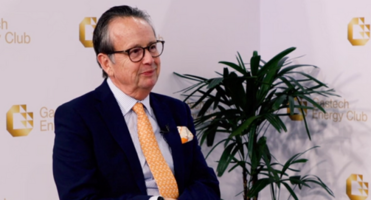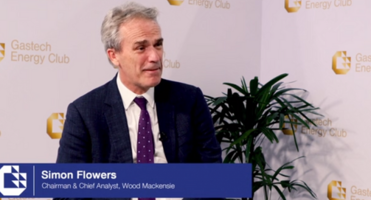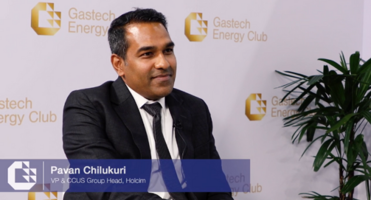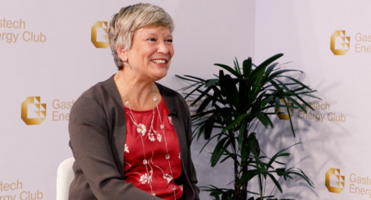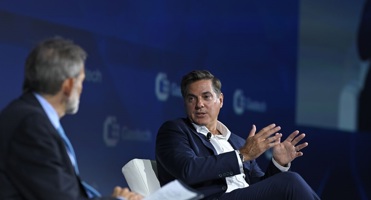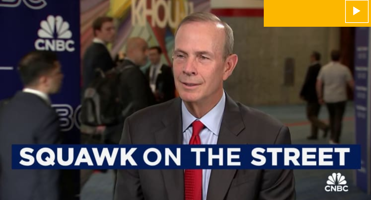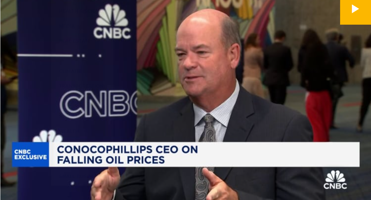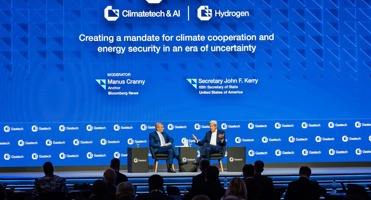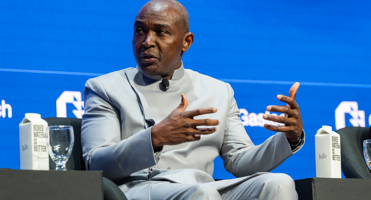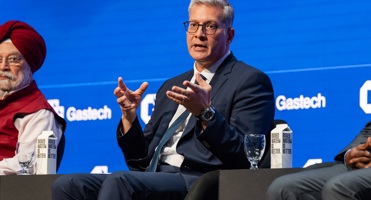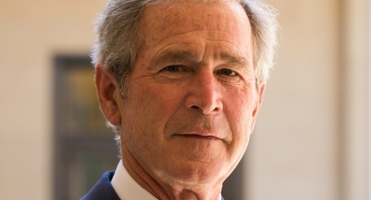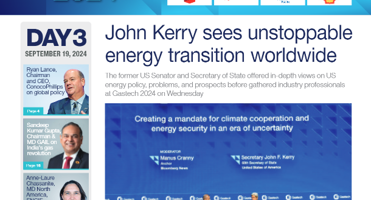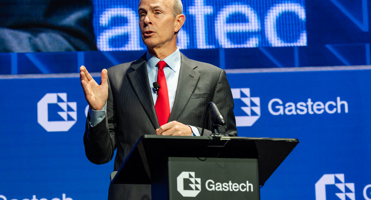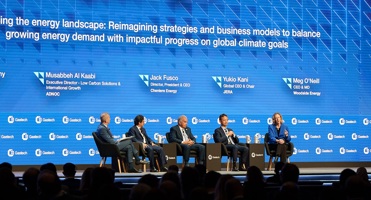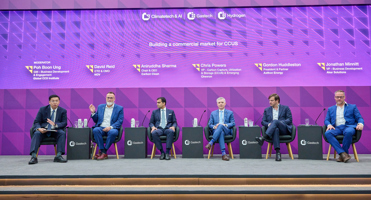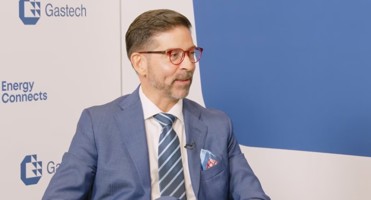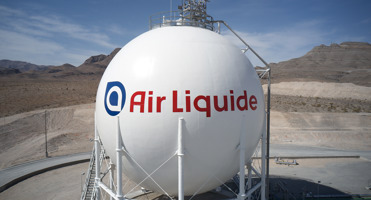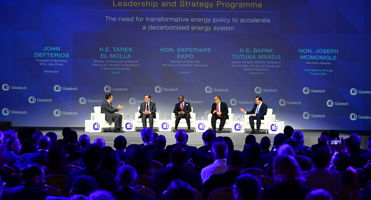- Some of the measures that European governments have taken to keep electricity costs down can be described as a “Ponzi scheme,” said Dan Brouillette, who served as energy secretary under the Trump administration.
- “One of the easiest policy levers if you will, is that you can pass a bill, appropriate money and give money to citizens to pay their electricity bills,” Brouilette told CNBC’s Hadley Gamble on the sidelines of the Gastech conference in Milan on Monday.
- Brouillette is currently president of liquid natural gas company Sempra Infrastructure.
Some of the measures that European governments have taken to keep electricity costs down can be described as a "Ponzi scheme," according to Dan Brouillette, who served as energy secretary under the Trump administration.
"One of the easiest policy levers if you will, is that you can pass a bill, appropriate money and give money to citizens to pay their electricity bills," Brouillette told CNBC's Hadley Gamble on the sidelines of the Gastech conference in Milan on Monday.
Brouillette is currently president of liquid natural gas company Sempra Infrastructure. Bloomberg reported on Monday that San Diego, California-based Sempra is in talks to sell LNG into Europe and is considering joint ventures to build LNG terminals there.
When asked about whether Europe's measures resemble a Ponzi scheme, Brouillette replied, "You could describe it that way. There's no question about that."
"It alleviates the immediate pain of not being able to pay the electricity bill, but the money just moves in a circle … It just goes from the consumer to the electricity company … it's not a long-term solution," he added.
The EU countries' energy ministers will meet on Friday to discuss methods to control surging gas prices.
Europe's gas prices jumped 30% higher on Monday after Russia announced that its main gas supply pipeline would remain shut indefinitely. Europe in recent months endured a sharp drop in gas exports from Russia, traditionally its largest energy supplier.
'Produce more'
The former energy secretary said consumers can expect higher energy prices in the near term.
Oil markets around the world are "very tight," and more oil is going to be used for heating and other purposes as winter approaches, said Brouillette. The prospect of an energy squeeze comes as Saudi Arabia hints at cutting its oil output.
The answer to alleviating the scarcity is to "produce more," said Brouillette.
"If we can produce more, create more infrastructure development in the United States, in Europe — that is the ultimate answer to the questions." He said it's important that the United States return to pre-pandemic levels of production.
"We are still roughly … a million and a half barrels short per day of what we were producing just two and a half, three years ago. So I think it's very important that we get back to that number."
Joseph McMonigle, secretary-general of the International Energy Forum, also said that oil supply is still lagging behind demand. "A lot of people think the gap between supply and demand is all OPEC or OPEC+ but half of that is still from U.S. producers," he told CNBC's "Capital Connection" on Monday.
Brouillette added that it was a "strange request by the [Biden] administration" to encourage U.S. oil producers to stop their exports and prioritize American consumers.
U.S. energy secretary Jennifer Granholm recently urged the country's refiners to limit fuel exports, and to build fuel inventories instead.
Brouillette said such a move is "impossible," because the oil market is in "backwardation." Backwardation is when the current price of a commodity is trading higher than its futures price. That, according to him, means that producers have more incentives to put their product in the marketplace. He added that publicly traded companies that are in America have fiduciary responsibilities to their shareholders.

















